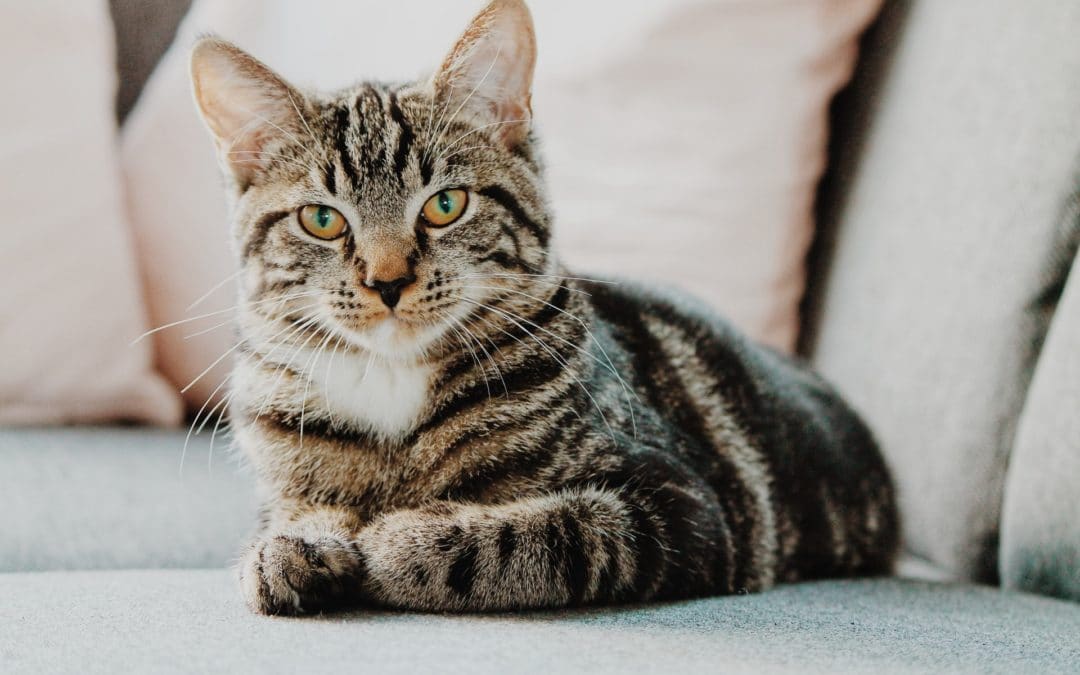Vaccines are essential if you want your cat to live a long and healthy life. FVRCP and rabies are two core vaccines that protect your cat against several highly infectious diseases. At East Valley Animal Hospital, we provide effective vaccines to keep your furry friend safe and healthy. Continue reading to learn about the most important cat vaccines and what diseases they prevent.
Four Highly Infectious Cat Diseases That Vaccines Easily Prevent
1. Feline Viral Rhinotracheitis (Herpesvirus)
The FVRCP is one of the most common core cat vaccines. It protects cats against feline viral rhinotracheitis (FVR), calicivirus, and panleukopenia. The FVRCP vaccine prevents your cat from becoming seriously ill if they get an FVR infection.
FVR is highly transmissible—cats become infected through direct contact with an infected cat or a contaminated surface. Although cats can recover from FVR with treatment, they could also become a carrier of the virus for the rest of their lives, even after they are vaccinated.
Also known as feline herpesvirus, FVR is a type of “cat flu” that can cause upper respiratory infection in cats. FVR is also a common cause of conjunctivitis, an infection that affects the eyes. Symptoms include discharge from the eyes and nose, sneezing, coughing, fever, and loss of appetite.
2. Calicivirus
The “C” in the FVRCP vaccine refers to feline calicivirus. The FVRCP vaccine helps prevent infection and reduces your cat’s chances of getting seriously ill if they contract calicivirus. Like FVR, this virus is another type of “cat flu” that can cause severe upper respiratory infections and oral diseases.
Calicivirus is transmissible through saliva or nose and eye discharge. Cats that come into contact with calicivirus-infected cats or contaminated objects are highly likely to become infected themselves. You might even spread the virus to your cat yourself by touching a contaminated surface and then touching your cat. Symptoms include conjunctivitis, discharge from the nose or eyes, nasal congestion, and sneezing.
3. Panleukopenia
Feline panleukopenia (FPL), also known as feline distemper, is also prevented by the FVRCP vaccine. Panleukopenia is a decrease in the number of white blood cells, which defend a cat’s body against disease and infection. The best way to protect your cat against panleukopenia is with the FVRCP vaccine.
The panleukopenia virus is part of the parvovirus family of animal viruses. FPL is extremely life-threatening and difficult to treat. A cat may contract FPL through contact with an infected cat, a contaminated object, or the feces of an infected cat. Symptoms of FPL may vary but can include vomiting, diarrhea, dull and rough fur, fever, and severe dehydration.
4. Rabies
Another important core vaccine is the rabies vaccine. Rabies is a zoonotic disease that can infect wild animals, cats, dogs, and even humans. The signs that a cat has rabies depend on the stage of the disease, but can include increased irritability, aggression, and eventually paralysis.
Cats get rabies through the saliva of an infected animal, typically from bite wounds. There is no treatment for rabies, and although people can sometimes recover from the disease, cats rarely do the same. Vaccinating your cat against rabies and keeping your cat indoors are the most effective ways to prevent the disease.
Cat Vaccinations in Gilbert
If your cat is overdue for any vaccinations, don’t hesitate to contact East Valley Animal Hospital in Gilbert, Arizona. Our compassionate team is dedicated to helping your cat live a long, healthy life with comprehensive care and effective immunizations. Call 480-892-1577 to schedule a vaccination appointment for your cat.
Images used under creative commons license – commercial use (4/13/2022). Photo by Erik-Jan Leusink on Unsplash

